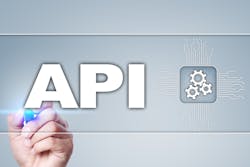FHIR-Based API Helps MultiCare ACO With Patient Attribution
One focus of the HL7 Da Vinci Project FHIR accelerator has been member attribution lists used by payers and providers for implementing value-based contracts, care gap closures and quality reporting. MultiCare Connected Care (MCC), an accountable care organization in Washington State, recently deployed a FHIR-based application programming interface (API) to help solve the attribution issue.
MCC is an ACO established in 2014 as a wholly owned subsidiary of MultiCare Health System and operates as an independent entity. Under this entity, 350,000 lives are served within 30 value-based contracts.
MCC teamed with Opala, a Seattle-based healthcare data exchange solutions provider, on its Attribution API, which works to streamlines delivery of value-based care to patients in a way that yields administrative efficiency and improves reimbursement for providers.
The API leverages the FHIR standard to identify which patients are part of value-based care contracts and ensure that providers and payers have complete information about patients in real time.
Historically, comparing lists of patients on value-based contracts with those in providers' records has been a time-consuming, error-prone manual process, overly reliant on Word documents or Excel spreadsheets to share information, Opala said. Without clear visibility into a patient's coverage, providers often are unsure of which patients qualify for comprehensive and preventative care.
Opala piloted the Attribution API with a multi-state health insurance provider in Washington State and Alaska, and MultiCare Connected Care. The API automates patient-matching processes by taking member data – coverage and attribution to a primary care provider based on their past care history – from the insurance provider, then converting it into FHIR-based attribution (ATR) lists that can be ingested directly into MultiCare's software systems.
"Multi-payer data exchange solutions, like Opala's, are key to delivering high-value care," said Anna Taylor, associate vice president of population health and value-based care at MultiCare, in a statement. "Since implementing Opala, patient matching has improved and we are able to see patient benefits in real-time, which allows us to earn higher reimbursement for value-based care."
MultiCare providers use the information from the Attribution API to identify patients they are accountable for under value-based contracts with the insurance provider while the patient is in the office. Opala said its solution improved patient matching, correctly identifying that the patient in their office is the same as the person on the insurance provider's value-based contract roster. Using this new automated process, the pilot showed a 10 percent improvement in patient matching between the insurance provider's rosters and patients in MultiCare's EHR, the company said.
In a statement, Jocelyn Keegan, HL7 Da Vinci Project program manager, praised the work taking place in Washington State: “The addition of the Opala team to Da Vinci membership and their testing and production use of ATR is invaluable to the community,” she said. “Our ability to enable providers to reuse standards-based APIs is foundational to ensure scaling and accuracy required for value-based contracts. It is critical that partners have accurate matching to increase transparency to real-time information about their patients to improve outreach, interventions, and time to service.”


